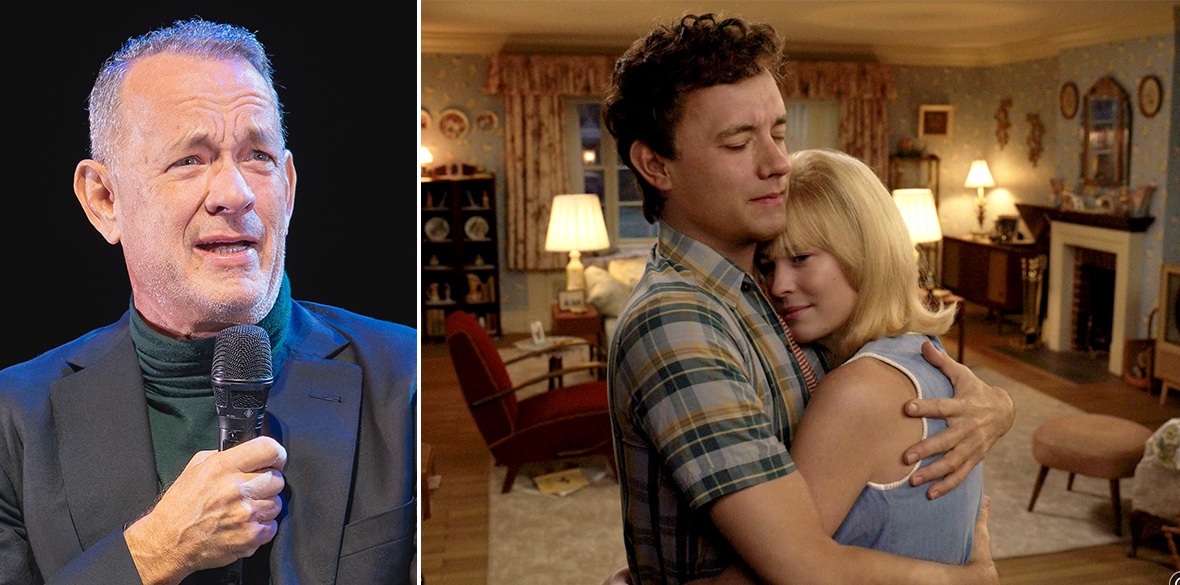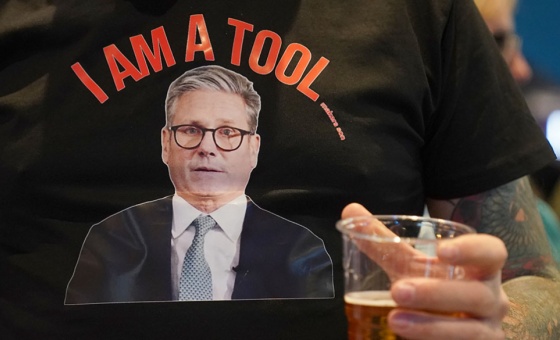This is the last article you can read this month
You can read more article this month
You can read more articles this month
Sorry your limit is up for this month
Reset on:
Please help support the Morning Star by subscribing here
THE year in media, both in the streaming business and in broadcasting as a whole, saw and will continue to see wholescale changes, many of them negative, some positive. The main story in streaming and in television is the new preponderance of artificial intelligence as its use by the film and television industry threatens not only employees but also the older established moguls and brands’ control of the industry as Silicon Valley makes more and more inroads into Hollywood through its technical dominance.
In 2025 we are likely then to see both a more closed and conservative space, due to deregulation and conglomeration, in corporate media and streaming. The counter to streamer agglomeration will be Global Television which, as I indicated in my survey of the Best Series of 2024, still manages to produce socially relevant series but which increasingly is under pressure to fold itself into the streaming giants (Netflix, Amazon, Apple, Disney+, Max) on whose platforms these series appear as they circulate around the world.
So, here come the machines and the mergers, there go the jobs.
The conglomerate streamers used the 2023 writers and actors’ strikes as an excuse to further cutbacks already underway in a streaming industry which lost its lustre the year before as Wall Street became aware that subscribers, at that point the key to profit, weren’t unlimited with even mighty Netflix reporting a quarter in which it had a loss of earnings.
Netflix at least retained its production budget (of $17 billion) for the year, but the others cut back drastically, not only cancelling series but also shortening both seasons and episodes.
The consolidation that had begun earlier, highlighted by Rupert Murdoch selling much of his 21st Century Fox label to Disney, also, as in any merger, resulted in drastic job losses as the majors, rather than creating relevant series that dealt with social problems that would attract viewers. The consolidation both retrenched and cancelled series and, following the streaming leader Netflix’s dictum that “we’re not in the truth to power business, we’re in the entertainment business,” further embraced mindless, time wasting series.
At the beginning of the fall, Paramount, whose streamer has yet to gain much recognition, announced it was closing its landmark Paramount Television Studio, as a first blow in laying off 2000 workers, 15 per cent of its workforce, by the end of the year. In terms of consolidation, which is beginning in the deteriorating cable field, DirectTV offered to buy its competitor Dish Networks, in a deal that was later rescinded, for $1.
The other major cost-cutting device, besides layoffs and cutbacks, is the always encroaching threat of AI. One of the reasons the actors and writers went on strike in 2023 was to halt this encroachment but the major AI companies, led by ultimate cut-throat capitalist Sam Altman’s OpenAI, continues apace to outflank any restrictions. Altman is on record as favouring privatising AI and its source code and overthrowing the tenets of the founders of his own company as the race is on for what is called Artificial General Intelligence (AGI), defined by the company as a “highly autonomous system that outperforms humans at most economically valuable work.”
It is, in other words, an instrument for un-employing the most amount of workers in the shortest amount of time.
Writers and actors have long feared that parts of that work will include the creation of scripts and the plastic fashioning of characters on the screen drawn from bits and pieces of actors’ work. Under those circumstances the recent Tom Hanks/Robin Wright film Here, a supposedly tender recounting of the history of one home, uses “digital de-ageing” to show the couple at various phases of their lives while readying the audiences for more plastic, less real, versions of the actors.
For writers the main fear was that AI, which can already generate barely literate scripts, might soon be able to generate mediocre ones that the writer, instead of being the creator, would then be called in, at a much lower price, to edit. The writers’ strike for the moment abolished this possibility by defining any AI-created script as not original.
The way around this though, which the producers now seek, is to continue training AI on old scripts, a concession the producers won in the strike. At some point if enough scripts are fed in, AI may be able to create a script that writers could not determine the machine had created.
The other key goal here is one the studios have long sought, and that is for them to have complete ownership of the script so that not the writer but the studio is emphasised, a return to the days of the classic studio system where the studio brand and name was more important than the writer or the director. For this purpose the studios are now developing their own versions of AI.
At the moment AI is being used primarily in production, resulting not only in cost-cutting in terms of not shooting on location but also in job-saving since these shortcuts can do what before was the work of many employees, not only graphics workers and editors but also stunt workers.
Look at the 2024 Christmas blockbuster (along with Wicked) Gladiator II and its construction of the key set, the Coliseum. The original used computer graphics (CGI) techniques such that every shot in the film was in some way doctored. For the sequel the director Ridley Scott, at first opposed to AI, used it. And the reason? Its “potential to reduce production costs” with the other reason, opening “new creative possibilities,” coming in a distant second.
Rome wasn’t built in a day but this version, done with far fewer workers, was. It may not bode well for the rest of the industry.
Television and media critic Dennis Broe whose work can be found on Substack at Cultural Politics For Those Who Care is also the author of the Harry Palmer LA Mystery Series, the latest of which is The Dark Ages, about the coming of McCarthyism to Hollywood in the 1950s.











